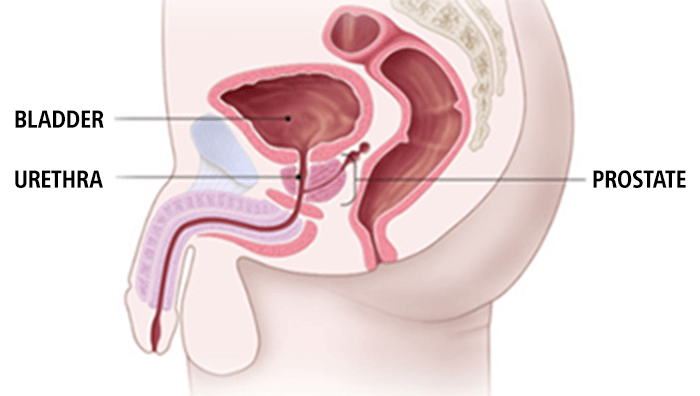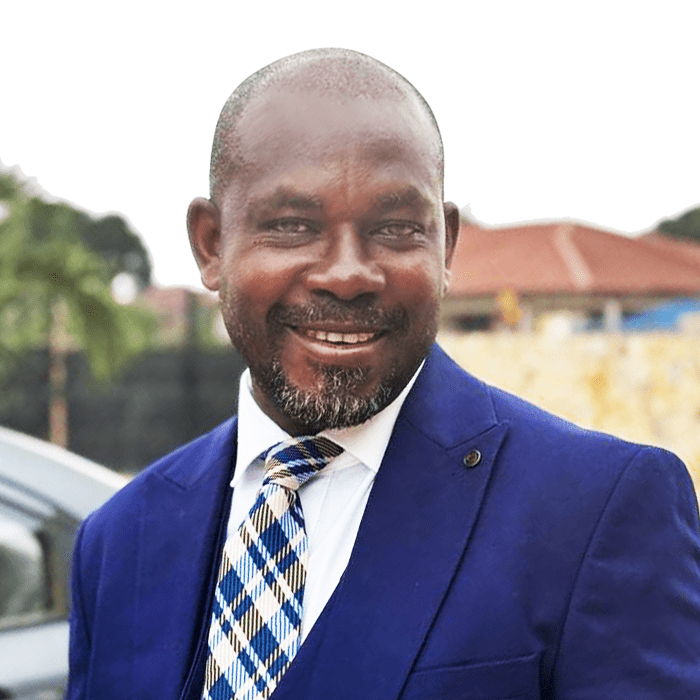Health Essentials
The impact of mental health misconceptions on relationships and marriage
As we manoeuvre the complexities of relationships and marriage, it is essential to acknowledge the significant role mental health plays in our overall well-being.
Unfortunately, mental health is often shrouded in misconceptions that can have far-reaching consequences on our relationships.
In this article, we will explore five common misconceptions about mental illness and how they can affect our relationships and marriages.
Misconception 1: People with mental illness are violent and dangerous
One of the most pervasive misconceptions about mental illness is that people who suffer from it are violent and dangerous. This could not be further from the truth. Research has shown that individuals with mental illness are more likely to be victims of violence than perpetrators. In fact, studies have found that people with mental illness are two to three times more likely to be victims of violent crime than the general population.
In relationships and marriages, this misconception can lead to fear and mistrust. Partners may worry that their loved one’s mental health condition will lead to violent outbursts or unpredictable behaviour. However, with proper treatment and support, individuals with mental illness can lead healthy, productive lives.
Misconception 2: Having a mental illness means you are “crazy”
Another common misconception is that having a mental illness means someone is “crazy” or unstable. This stigma can prevent individuals from seeking help and can lead to feelings of shame and guilt.
In relationships, this misconception can create tension and conflict. Partners may not understand their loved one’s mental health condition, leading to frustration and resentment. However, by educating ourselves about mental health and seeking support, we can work to break down this stigma and build stronger, more supportive relationships.
Misconception 3: Post-Traumatic Stress Disorder (PTSD) only affects military personnel
PTSD is often associated with military personnel, but the reality is that anyone can develop PTSD after experiencing a traumatic event. This can include survivors of natural disasters, domestic abuse, or sexual assault.
PTSD can have a significant impact on relationships and marriages. Partners may struggle to understand their loved one’s symptoms, leading to feelings of frustration and helplessness. However, by seeking support and education, couples can work together to build a stronger, more supportive relationship.
Misconception 4: Mental Health conditions are rare
Mental health conditions are more common than we think. According to the World Health Organization (WHO), one in four people worldwide will experience a mental or neurological disorder at some point in their lives.
In relationships and marriages, mental health conditions can affect anyone. Partners may struggle to cope with their loved one’s mental health condition, leading to feelings of burnout and resentment. However, by seeking support and education, couples can work together to build a stronger, more supportive relationship.
Misconception 5: Seeking help for mental illness leads to stigma
Finally, many people believe that seeking help for mental illness will lead to stigma and judgment from others. However, seeking help is a sign of strength, not weakness. Seeking help for mental illness can actually strengthen the relationship. By working together to address mental health concerns, couples can build a stronger, more supportive relationship.
The importance of education and support
Education and support are key to breaking down the stigma surrounding mental health. By learning about mental health conditions and seeking support, couples can build stronger, more supportive relationships.
Communication is essential for the relationship’s health. Partners should feel comfortable discussing their mental health concerns and seeking support from each other. By doing so, couples can work together to build a stronger, more resilient relationship.
In conclusion, mental health myths can have a significant impact on relationships and marriages. By educating ourselves about mental health and seeking support, we can work to break down these misconceptions and build stronger relationships.
If you are struggling with mental health concerns or know someone who is, do not hesitate to seek help. With the right support and education, couples can build a stronger, more resilient relationship that can withstand the challenges of mental health concerns.
To be continued …
Source: Excerpts from “COURTSHIP MATTERS: Keys to a Fulfilling Lasting Marriage” Book by REV. COUNSELOR PRINCE OFFEI (Lecturer, Author, and Marriage Counsellor).
ORDER BOOK NOW:
https://princeoffei22.wixsite.com/author https://counselorprinceass.wixsite.com/edu-counseling-psych https://princeoffei22.wixsite.com/website
COUNSELOR PRINCE & ASSOCIATES CONSULT (CPAC COUNSELLOR TRAINING INSTITUTE)
Health Essentials
The Prostate Has Found Its Voice

The prostate gland, a small but essential organ found only in men, plays a key role in reproductive health. It produces fluid that nourishes, protects, and transports sperm, yet many focus only on its connection to prostate cancer.
Location & Function
- Situated between the bladder and penis, with the rectum behind it.
- The urethra passes through the prostate, carrying urine and semen.
Common Prostate Conditions
1. Prostatitis – Infection of the prostate:
- Symptoms: chills, fever, pus-like urethral discharge, painful urination, groin/testicular pain, painful orgasms, erectile dysfunction.
- Advice: Seek professional help; do not self-medicate.
2. Benign Prostatic Hyperplasia (BPH) – Non-cancerous enlargement of the prostate:
- Symptoms: frequent urination (especially at night), urge incontinence, difficulty starting urination, weak stream, painful urination, blood in urine, terminal dribbling, and in severe cases, inability to urinate.
- BPH can be extremely painful, sometimes compared to labor pains.
3. Prostate Cancer – Common among men, especially black men, often aggressive and with earlier onset:
- Risk Factors: older age, African descent, family history, obesity.
- Symptoms: frequent urination, straining, blood in urine/semen, weak urine flow, new erectile dysfunction; advanced stages may include fatigue, weight loss, and bone pain.
Diagnosis
- Digital rectal examination – checks for irregular or hard areas.
- PSA test, biopsy, ultrasound, CT/MRI/PET scans, bone scan.
Management
- Holistic approaches include watchful waiting, medication, surgery, and radiation (external & brachytherapy).
- Always discuss all options with your healthcare provider.
Risk Reduction Tips
- Regular screening
- Healthy, varied diet rich in fruits and vegetables (carrots, tomatoes, broccoli, kale, cauliflower)
- Maintain a healthy weight
- Exercise at least 5 days a week
Final Advice
- Share this information – the prostate needs support!
- Maintain good hygiene, walk and exercise daily, pray, and know your numbers (blood sugar, blood pressure, cholesterol, BMI).
Thought for the Week:
“There is no magic formula to being happy but making a conscious effort to be happy goes a long way.” – Dr. Kojo Cobba Essel
Dr. Essel invites readers to the La Palm Royal Beach Hotel Wellness Festival on Saturday, November 29, 2025, at 6 a.m., to walk, exercise, network, and share ideas to stay healthy.
Contact: dressel@healthessentialsgh.com
By Dr. Kojo Cobba Essel
Join our WhatsApp Channel now!
https://whatsapp.com/channel/0029VbBElzjInlqHhl1aTU27
Health Essentials
Stop the silent killer: Breaking myths to prevent sudden deaths from high blood pressure

Every week in Ghana, a life is cut short, sometimes in the middle of traffic, sometimes at a desk, sometimes in the quiet of sleep. A father doesn’t come home. A sister doesn’t wake up.
A colleague slumps at work and never gets back up. Families are left asking why and you will hear statements like what happened? Was he sick? I just saw him, he has not shown signs of ailment, what a shock and so on.
Behind many of these sudden tragedies is a quiet, invisible force: high blood pressure, or hypertension. It doesn’t scream for attention. It doesn’t always show symptoms. But it tightens its grip silently on hearts, on brains, on lives.
This is not just a medical issue. It is a human one, it is about behaviour, it is about ignorance and it is about lifestyle. It is the grandmother who never got her blood pressure checked because she felt “fine.”
It is the taxi driver, the statistician, the nurse who ignored his pounding headaches, thinking it was just stress. It is the young lady who was so vibrant at church and no one suspected she could fall and die. Because it shows no symptoms.
The alarming numbers we cannot ignore
The Ghana’s 2023 STEPS Survey on Non-Communicable Diseases conducted by The World Health Organisation, Ghana Health Service and Ghana Statistical Service has revealed findings that should push for action.
According to the report, 21.7 per cent of adults aged 18 to 69 in Ghana are living with high blood pressure. Even more alarming is that 51.1 per cent of those with hypertension are not aware of their condition.
This means that more than half of the people with dangerously high blood pressure are walking around without knowing it until tragedy strikes. That is the real danger of this silent killer.
Literature has shown that hypertension is preventable and manageable. But only if we treat it like the threat, it is. That means regular checkups; that means understanding the risks and that means talking about it openly, urgently, and with compassion.
The deadly power of myths
Why are so many Ghanaians untested or untreated? Is it out of ignorance, or the pervasive myths about hypertension and its treatment?
• Some believe blood pressure medicine “weakens the body” or “shortens life.”
• Some believe blood pressure medicine “weakens the penis and kills sexual drive”
• Others think once you start taking medication, you are “dependent for life.”
• Many say, “I feel fine, so I must be fine.”
These beliefs are not only false, but they are also deadly. The truth, according to the World Health Organisation, is that effective treatment can reduce the risk of stroke by up to 40 per cent and heart attack by 25 per cent. Avoiding treatment does not prevent dependence rather, it accelerates death.
As Dr Patrick Kuma-Aboagye, former Director-General of the Ghana Health Service, has noted, “Hypertension is preventable and treatable, but our biggest battle is misinformation and late detection.”
A national conversation we must have
This is not just a health issue it is a national emergency. Sudden deaths rob families of breadwinners, communities of leaders, and the country of its productivity. In every obituary notice caused by hypertension, there is a story of loss that could have been prevented with a simple blood pressure check and treatment.
Behind every life saved is a moment of awareness, a decision to act, therefore, the media must rise to the challenge.
Radio and television programmes should dedicate regular airtime to demystify hypertension. Newspapers should carry survivor stories, expert interviews, and practical lifestyle advice.
Social media influencers should spread awareness in local languages, reaching young people who assume they are safe.
Public health experts also have a responsibility. Screening must move beyond hospitals into churches, mosques, markets, schools, and workplaces. People should not have to wait for illness to know their BP status.
What we can do together
To stop the silent killer, we need a collective response:
• Check your blood pressure regularly, even if you feel healthy.
• Follow medical advice faithfully if diagnosed because treatment saves lives.
• For healthy lifestyle, eat less salt, reduce alcohol, reduce starchy, fat and oil intake, avoid smoking, and exercise at least 30 minutes daily.
• Encourage one another talk about blood pressure in families, communities, and workplaces.
Conclusion: Silence is killing us
What kills is not just the disease, but the silence, fear, and myths that surround it. The STEPS 2023 report has sounded the alarm: nearly one in five Ghanaian adults has high blood pressure, and more than half don’t even know it.
This is the time for bold conversation, public education, and decisive action. The media, health professionals, policymakers, and ordinary citizens must join forces to expose the myths, spread the facts, and save lives. Let us not wait for another headline.
Let us make blood pressure a national conversation before it becomes a personal tragedy. With awareness, treatment, and collective will, Ghana can stop the silence and stop the sudden deaths from the silent killer.
Written by: Ansah Moses Teye-Akam – Senior Statistician, Sociologist/Scientific Research Organisational Expert.
Email: moses.ansah@ statsghana.gov.gh/ansahmosesteyeakam@ gmail.com.gh Contact: 0244539034 / 0204359034
Join our WhatsApp Channel now!
https://whatsapp.com/channel/0029VbBElzjInlqHhl1aTU27






